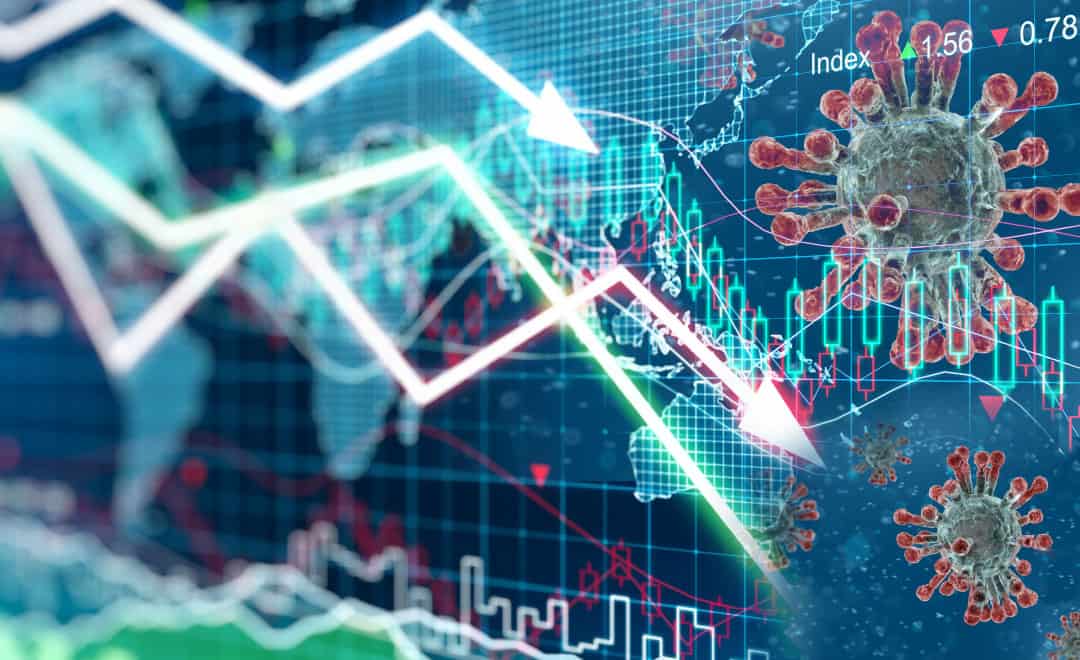With the market down 30%, everyone is asking, “Are we in a recession?” In our opinion, yes. While we don’t have the data to prove it, the National Bureau of Economic Research gave 2020 a one-in-three chance of experiencing a recession. They estimated a 1.9% growth in gross domestic product. However, their estimates came with a caveat: If we saw an acceleration of the trade war or if the then-localized infection of the coronavirus in China became a global pandemic. Unfortunately, the latter has become a reality.
It is hard to imagine our economy not contracting in March and that the economy won’t contract significantly in the second quarter. One of the major data houses projected a 14% drop off in the first quarter, so there is very likely some ugly data coming in the near term. How long it will last cannot be predicted; therefore, we’re likely headed into—if not already in—a recession. We estimate we’ve shut down 80% to 90% of economic activity in the country. Effectively, restaurants are closing, airlines, hotels, and almost everything related to hospitality is all under pressure. A lot of professional and business services are still being conducted, but perhaps at a diminished level.
In our opinion, the main pillar that had been holding our economy up was the consumer. About 75% of our economy is consumption. The consumer was strong, as wage growth was increasing with 3.5% unemployment. With the coronavirus outbreak, this has obviously been damaged. However, we also need to realize that we cannot predict what will happen in the fourth quarter 2020 or beyond.
So, once we get the all-clear, what will it take to get the economy going again? First, people need to be employed again. People will then need to go out and spend money. If you’ve been cooped up in your home for weeks, where is the first place you’ll likely want to go—to a restaurant or bar, movie theatre, or stores? During the isolation phase, products and inventory have been cut. It is going to take time to restock the shelves. Without knowing how long this will last, it is impossible to predict the economic rebound.
While all of this is going on, oil is having its own sub-crisis. In a move to stabilize crude oil prices, Saudi Arabia met with OPEC to lower global oil production. OPEC members reportedly agreed, but Russia insisted they will continue production unfazed by the global pandemic and its economic fallout. Saudi Arabia saw Russia’s challenge by proceeding to pump oil at its maximum capacity. Now, oil prices have plummeted more than 48% to a level lower than was experienced in February 2016. This price was not sustainable then and we don’t believe it is sustainable now. At the lows in 2016, Saudi Arabia began to show signs of economic troubles as their national budget is reportedly set with oil prices assumed at $72 per barrel. Strangely enough, cheap oil, which begets cheap gas, also fed into the financial market decline as energy companies are expected to withdraw any capital expenditures in the coming months or years. Keep in mind that all consumers reliant on transportation will benefit from lower oil prices.
In our experience, economic fixes don’t happen overnight. They take months. The government will likely have to pump trillions of dollars into the economy and to get the money to those who need it—i.e., the consumers who lost their jobs and cannot pay their mortgage. Thankfully we have seen steps we believe are in the right direction. There has been legislation passed to help businesses deal with sick leave, and the Small Business Administration is offering business guidance and loan resources to help businesses who have been significantly hurt by less foot traffic.
While you may say this recession is different this time, we don’t believe it is. It’s certainly a different cause, but financial market and economic reactions are not different. History doesn’t repeat, but it does often rhyme. This will pass.
If you have questions regarding the economic outlook, the experts at Henssler Financial will be glad to help:
- Experts Request Form
- Email: experts@henssler.com
- Phone: 770-429-9166
- Join the Conversation in Our Coronavirus Facebook Group






